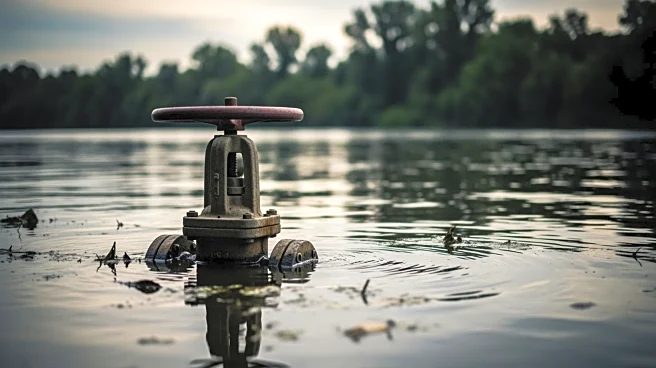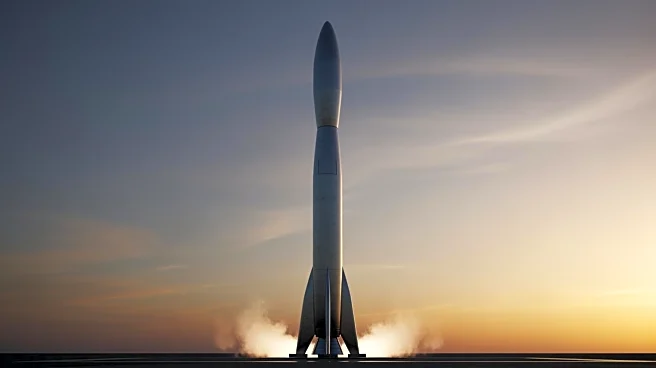What's Happening?
The Environmental Protection Agency (EPA) announced a significant change to the Clean Water Act, redefining the scope of federal jurisdiction over wetlands. This move follows a Supreme Court decision from 2023, which limited federal protections for certain
wetlands. The new 'Waters of the United States' rule will focus on permanent bodies of water such as streams, rivers, and lakes, along with wetlands directly connected to these bodies. EPA Administrator Lee Zeldin stated that the rule aims to accelerate economic prosperity while reducing regulatory burdens. Critics argue that the rule favors industry and ranchers at the expense of environmental protections.
Why It's Important?
The redefinition of the Clean Water Act's scope has significant implications for environmental policy and property rights in the U.S. By limiting federal oversight, the rule could lead to increased development and industrial activity in areas previously protected, potentially impacting water quality and ecosystems. Environmental groups warn that this could result in the destruction of vital waterways and natural habitats, exacerbating issues related to climate change and storm surges. Conversely, proponents argue that the rule provides clarity and reduces federal interference, benefiting farmers and landowners by simplifying compliance requirements.
What's Next?
The proposed rule will undergo a public comment period of at least 45 days, during which stakeholders can express their views. The EPA will likely face legal challenges from environmental groups seeking to maintain broader protections for wetlands. The rule's finalization could lead to further shifts in federal and state regulatory dynamics, as states may need to adjust their own water protection policies in response. The ongoing debate over the balance between economic development and environmental conservation is expected to continue, with potential implications for future legislative and judicial actions.
Beyond the Headlines
The decision to limit federal jurisdiction over wetlands raises questions about the long-term sustainability of U.S. water resources. As climate change intensifies, the role of wetlands in mitigating flood risks and preserving biodiversity becomes increasingly critical. The rule's impact on property rights and land use could also influence broader discussions on environmental justice, particularly in communities vulnerable to climate-related disasters. The evolving interpretation of the Clean Water Act reflects broader political and ideological divides over environmental regulation and economic priorities.
















